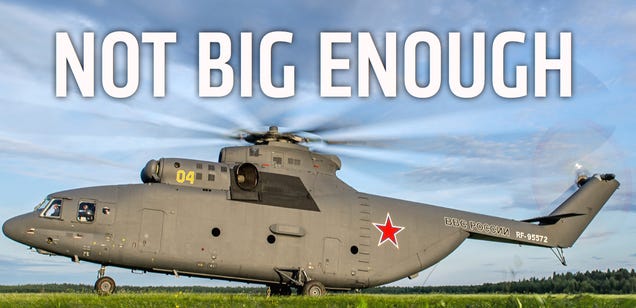
Currently,
the largest and most powerful helicopter to have ever entered
production is the gargantuan Mi-26 'Halo' of Russian origin, of which
many still serve in governmental and commercial roles around the globe.
After decades of the 'Halo' being on top, a new record holder is now
said to be on the way, with Russia and China joining forces to make it
happen.
Cockpit of the highly modernized Mi-26T2, currently the most powerful and largest helicopter in the world.
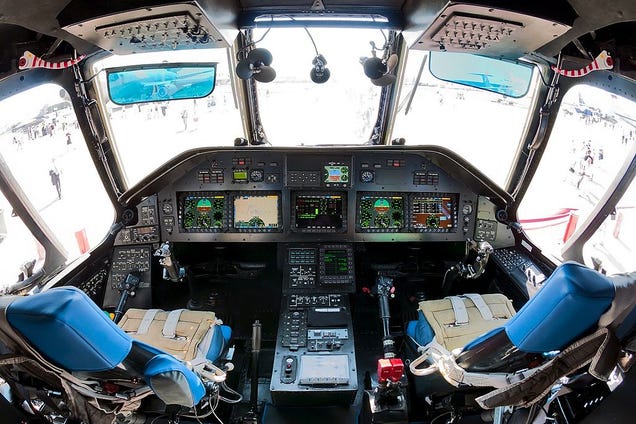 Expand
Expand
This new
super-heavy lift class chopper was originally thought to be an outgrowth
of the existing, all-weather capable and highly modernized Mi-26T2, but
now it seems that it will only borrow a few elements from it, and will
overwhelmingly be a 'clean sheet' design.
The fresh
design approach is due to China's eye popping requirements. According to
Russia, they are said to include almost twice the lifting capacity of
the already freakishly powerful and huge Mi-26. That would put the new
chopper's lifting ability at somewhere around 80,000lbs! In comparison,
the CH-53K 'King Stallion,' America's latest heavy lift design, has a total gross weight just slightly above that figure at 88,000lbs.
You heard
that right, this new Russian-Chinese super chopper is aiming to be able
to lift roughly the equivalent of America's newest heavy-lift chopper in
its entirety, at its maximum gross weight. That is one powerful
helicopter.
Originally,
this new Russian-Chinese design was thought to be an outgrowth of the
Mi-26T2, although this is now inaccurate as Chinese performance demands
are far outside any existing designs' theoretical capabilities.
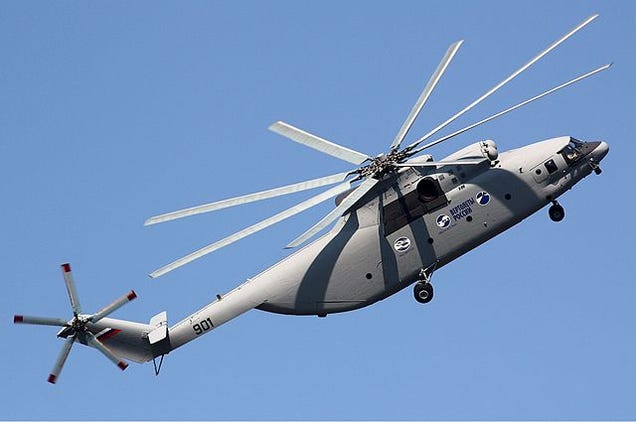
The
Mi-26 can already haul vehicles that are larger than what can fit even
into a C-130 Hercules, including everything from armored personnel
carriers to dump trucks. Yet China has had a uniquely large demand for
heavy under-slung cargo carrying ability, for both construction and
logistical purposes and there has been talk for the last decade or two
about how a super-heavy lift helicopter could change the way some
structures are built. This is especially true for modular vertical oriented structures that are intended to be built fast and replicated quickly, an area of architecture and construction that China continues to be the leader in.
Just part of the massive cargo hold of the Mi-26T2. The aircraft has been nicknamed the 'flying office building' for a reason.
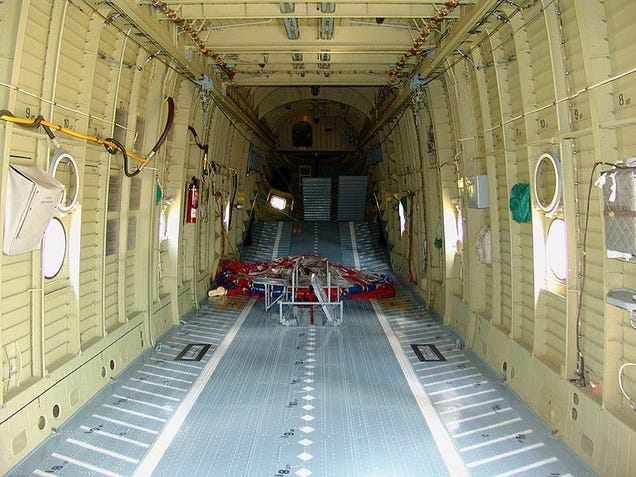 Expand
Expand
According
to Russian reports, multiple Chinese agencies are part of this new
mega-chopper procurement program, including those that deal with
emergency management and response. This makes some sense as during a
natural disaster, or even a time of conflict, moving massive amounts of
supplies quickly will be all that much more critical considering China's
massive population.
Mi-26 lifting a stricken CH-47 in Afghanistan:
The only
other helicopter ever flown that could lift anything in the weight class
that China is looking for was also of Russian origin: the colossal Mil V-12.
Only two prototypes were built and test flown in the late 1960s, and
the design used a unique parallel/traverse rotor, quad-engine layout. At
first, the aircraft almost tore itself apart during testing, but later,
the second prototype was seen widely as a successful, although
uneconomic design.
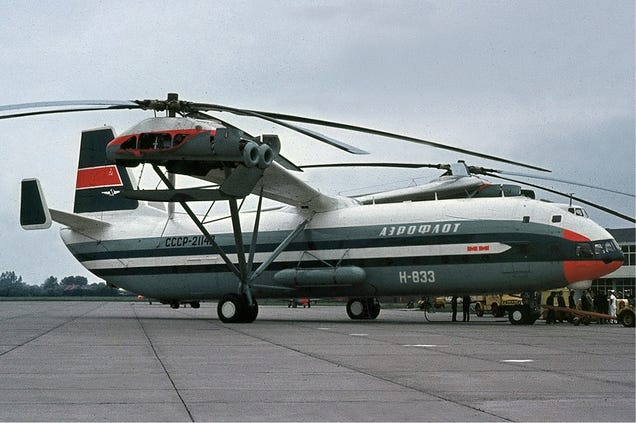 Expand
Expand
The V-12
was built to haul close to close to 100k lbs, although normal missions
were thought to see the super-chopper carry about 85,000lbs, with
lighter loads being carried over increasingly longer distances.
The V-12
was never put into series production because its intended mission, to
deploy ballistic missiles around the vastness of the Russian
countryside, was not a priority by the time the design was mature. It is
not clear if Russia plans on reviving similar design elements of the
V12 program to meet China's high, or should I say heavy, vertical lift
aspirations.
A cost has
not been publicly assigned to the program, nor has there been word
regarding what percentage Russia will share in the costs of developing
such an exotic machine. Regardless of the public absence of some
details, Russia says this new design requirements will be locked by the
first quarter of 2015.
Sources: Rostec, VerticalLINK


